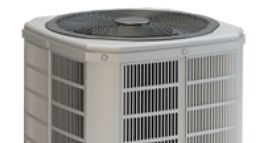“How does a home warranty work?” and other questions for agents
Home Warranty Service Agreements, homeowners insurance and structural warranties are all important considerations when purchasing a new home. Inevitably, your clients will ask you to give them advice on the types of coverage they need on their new home. Today, we’ll help you explain how a home warranty is different from other kinds of coverage in your clients’ terms. Here’s the pocket-sized comparison:
- Home warranties cover repair/replacement costs for the home’s covered systems and appliances when they break down from routine use.
- Homeowners insurance covers damage from events like weather, fire and theft, along with accidental injury and death.
- Structural warranties cover damage to the home’s designated load-bearing elements, and only home builders may purchase them.
Let’s now look at the details behind each kind of coverage.
What is a home warranty?
A home warranty is an annual Service Agreement that covers the repair or replacement of specified systems and appliances when they break down from routine use.
How does a home warranty work?
First, let’s look at some of the things a 2-10 Home Buyers Warranty (2-10 HBW) systems and appliances home warranty covers. You can see a comprehensive list here.
Protected systems
- HVAC system, including A/C refrigerants
- Water heaters
- Plumbing
- Electrical panels/wiring
Protected appliances
- Refrigerator
- Oven
- Dishwasher
- Disposal
- Built-in microwave
When a covered item breaks down, the homeowner files a claim with 2-10 HBW. We assign a qualified, approved Service Contractor to the home. The Service Contractor collects a Service Fee (usually less than $100), then assesses the breakdown. If it’s covered and fixable, the Contractor fixes it, and 2-10 HBW covers the cost. If it must be replaced, 2-10 HBW will cover the cost of replacement up to the coverage limit specific to the Service Agreement.
For example, the average HVAC system replacement costs $6,400. With a 2-10 HBW home warranty, a homeowner could pay as little as an $89 Service Fee upfront—a bit over 1% of the average replacement cost—to have an unrepairable HVAC system replaced.
What is homeowners insurance?
Homeowners insurance is property insurance. It covers losses to a person’s home (and sometimes personal possessions) caused by outside events like theft, storms, fire and other disasters. Homeowners insurance also provides liability coverage against injuries or accidental deaths that happen on the property or in the home.
How does homeowners insurance work?
For most of your clients, homeowners insurance will be mandatory. Helping Buyers who take out a mortgage—especially first-time Buyers—understand that their lenders require coverage is an easy way to start the conversation about different home coverages. This is also a good time to explain that homeowners insurance doesn’t cover system or appliance breakdowns caused by routine use.
For example, say a homeowner has a fire in their home. Here’s how the process would work:
- The homeowner files a claim with the insurance company. In this case, the homeowner has never filed a claim, has a $1,000 deductible and a $300,000 coverage limit.
- The insurance company sends a claims adjuster out to assess the cost of the damage. In this case, the fire damage amounts to $20,000.
- The home owner receives a check for $19,000. This is the damage amount minus the deductible.
Going forward, that homeowner’s home will likely incur higher monthly premiums, since the insurance company recognizes it as a higher risk.
What is a structural warranty?
A structural warranty from 2-10 HBW is third-party, insurance-backed coverage. It covers defects to a newly built home’s load-bearing elements. It applies to newly built homes and lasts for 10 years. Only builders within the 2-10 HBW Builders Network may purchase it.
How does a structural warranty work?
If your clients are purchasing a home that is more than 10 years old, a structural warranty won’t apply to them.
However, structural warranties will apply to 2 kinds of Buyers:
- Buyers who purchase a brand-new home
- Buyers who buy a home that is less than 10 years old and that came with a 2-10 HBW structural warranty through their builder
A 2-10 HBW structural warranty provides 10 years of coverage if there’s a defect to the home’s load-bearing elements. Some common load-bearing elements include:
- Roof framing
- Load-bearing walls
- Beams
- Columns
- Foundation
- Floor framing
For example, if your client’s foundation in their newly built home suffers a big crack caused by soil movement (which is the cause of 80% of all structural defects) and the builder provided a 2-10 HBW structural warranty, 2-10 HBW would pay the cost to address that specific problem.
A structural warranty does not renew after the 10-year term ends. It does not cover damage or failures to structural components caused by natural or other disasters. That’s where homeowners insurance comes in. Nor does it cover breakdowns caused by routine use of the home’s systems and appliances. That’s where a home warranty comes in.
What coverage should I recommend to my clients?
Buyers appreciate (and tend to refer) agents who look out for them. Recommending or even purchasing a home warranty for your Buyers at closing is a great way to start their home ownership with comprehensive coverage. Between down payments, mortgage payments and everything else, it can be a budget saver for your clients.
2-10 HBW offers comprehensive systems and appliances home warranties to help protect your clients from unexpected repair and replacement costs. Contact us to learn more.








